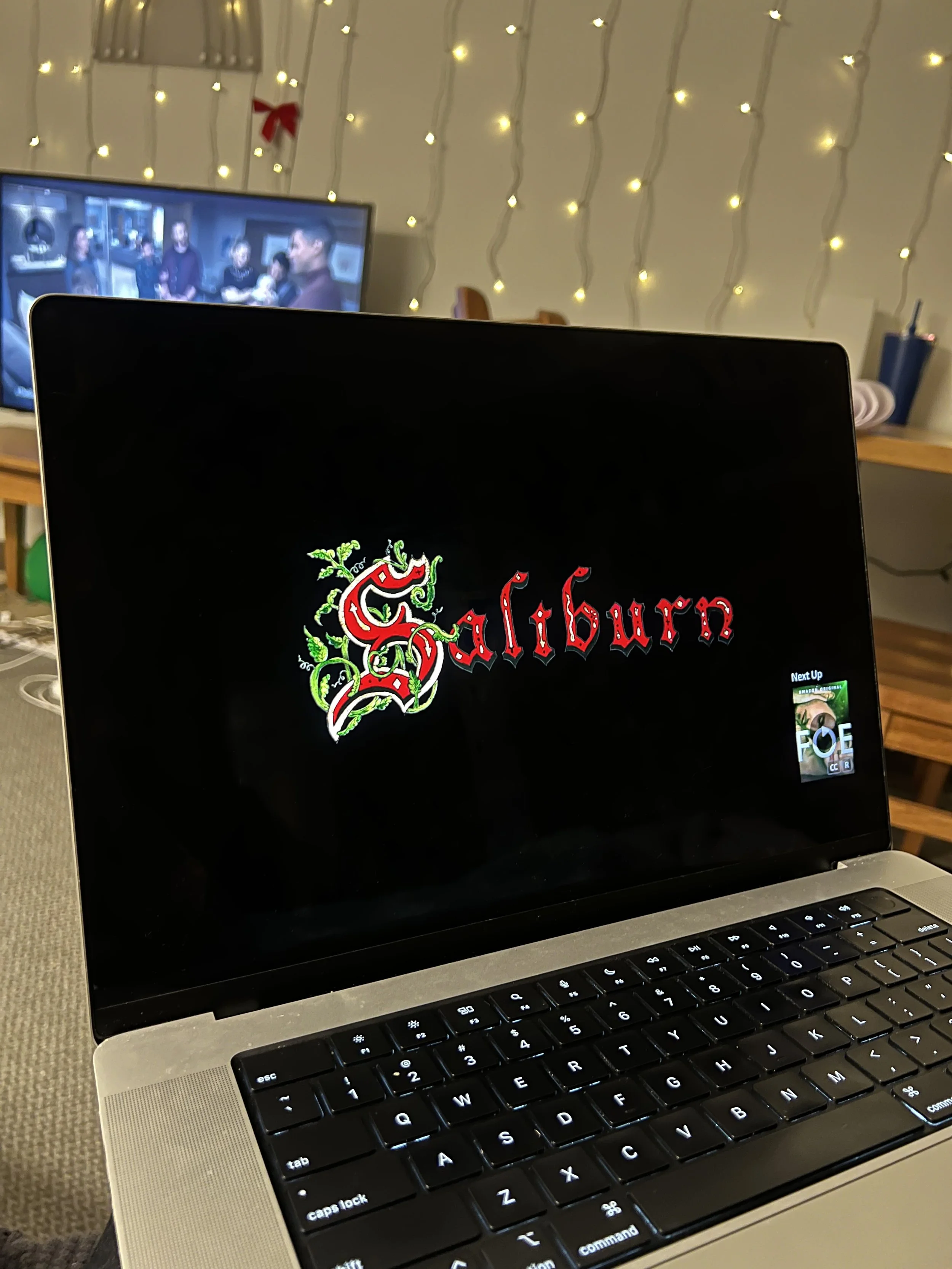“Saltburn:” A Dive into Symbolism and Tragedy
Saltburn over. Photo Grace Elmer 26
Warning: spoilers ahead
“Saltburn'' has become a sensation since its release in early November. The film, directed by Emerald Fennell, has received an abundance of mixed reviews in which people either praise or loathe the film.
The movie provokes controversy, and for good reason. Viewers have voiced online that the film has several graphic and disturbing scenes and an unlikeable protagonist. For those willing to look beyond the provocative, you might discover this film is rich with symbolism. “Saltburn'' paints an amazing depiction of human nature’s deepest emotions – lust, grief, limerence, and the insatiable thirst for power.
At the beginning of the movie, we are introduced to the underdog of Oxford University’s class of 2006, Oliver Quick – played by Barry Keoghan. It’s safe to say viewers feel sympathetic and root for him early on. He has a hard time trying to fit in as he is entirely there on scholarship and struggles to conform to Oxford's class dynamics and expectations. He is a fly on the wall– often admiring Felix Catton from afar. However, it’s not long before viewers notice something strange about his demeanor.
Felix Catton, played by Jacob Elordi, is another student in Oliver’s class who is everyone's ‘golden boy.’ People fall at Felix’s feet, captivated by his charisma and seemingly boundless wealth.
Oliver’s obsession with Felix spreads to the other members of the Catton family until he is completely under everyone’s skin. This is only until Felix discovers the truth about Oliver. He lied about his father’s death and came from a lower-class household. His entire backstory was just a means to get Felix's attention.
Felix is devastated to discover he was lied to the entire time. As the family had already planned Oliver's birthday party, Felix put his feelings aside for the evening. Oliver’s birthday party is “A Midsummer Night’s Dream” themed.
In the party scenes, paying close attention to the details and layers of symbolism is extremely important. For the party, Felix is wearing golden angel wings. The costume represents Icarus from Greek mythology, son of Daedalus. Daedalus was the architect of the labyrinth of Crete, which connects to “Saltburn'' because the estate has a labyrinth of its own. In the story of Icarus, he flies too close to the sun, melting his wings and leading to his death. This is due mainly to his naivety. Felix’s determination to fix Oliver’s pain and flaws is yet another way he mirrors the character Icarus. However, as the movie progresses, we discover Oliver is only ever capable of destruction. This leads to Felix’s tragic death due to his naivety in the movie.
In the center of the labyrinth at the Saltburn estate, there is a statue of a Minotaur. The Minotaur, half man and half bull, can symbolize man's arrogance and selfishness. Oliver wears horns during the “A Midsummer Night’s Dream” party, representing the Minotaur in the story of Icarus. The Minotaur statue is depicted as a darker symbol of human nature, representing the arrogance, destructiveness, and selfish nature of Oliver.
The labyrinth symbolizes Oliver's journey during this movie to essentially inherit all the wealth from the Catton family and the Saltburn estate. It can also represent how people tend to get lost in mazes, but Oliver quickly finds his way around and gets to the center. He was never lost; every action was calculated and manipulative from the start.
Some issues with the movie have been discussed amongst critics online, arguing that the entire film was just a compilation of scenes with shock value and lacked plot structure. However, the symbolism that can be found in this movie relating to the story of Icarus and “A Midsummer Night’s Dream” is rather engaging and produced very well – from the cinematography to the depth of each character and the depiction of classism. It immerses viewers in the complex and dark side of human nature. Fennell’s ability to create a modern story while tying in themes and symbolism from classic literature was exceptionally done.
